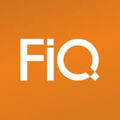Position Type: Contract – (Project-Based)
Reports To: Vice President of Education
Work Arrangement: Hybrid/Remote
Duration: Defined project term (approximately 6–8 weeks)
Position Overview
Centres for Early Learning (CFEL) is seeking a professional Ghostwriter with an established background in Early Childhood Education, curriculum design, and educational writing to collaborate on the refinement and completion of CFEL’s proprietary curriculum. This engagement is critical to ensuring that the curriculum achieves a seamless, professional, and pedagogically sound presentation reflective of CFEL’s standards of excellence.
The Ghostwriter will review the existing draft in its entirety, ensuring that the final document demonstrates cohesion, clarity, and a unified voice across all sections. They will refine tone, structure, and flow to enhance readability and consistency, ensuring that all content aligns with CFEL’s child-centered, play-based, emergent, and inclusive philosophy of early learning.
In this role, the Ghostwriter will integrate principles from How Does Learning Happen? (HDLH) and Early Learning for Every Child Today (ELECT) to ensure pedagogical alignment and theoretical accuracy. Each revision must authentically represent CFEL’s educational identity, emphasizing responsive relationships, inquiry-based exploration, and reflective practice.
The ultimate goal of this project is to produce a publication-ready curriculum document that is professionally written, theoretically grounded, and practically relevant for educators. The finished work will serve as both an instructional guide and a representation of CFEL’s leadership in delivering high-quality early learning experiences built on integrity, collaboration, and educational excellence.
Core Functions and Responsibilities
Curriculum Review and Analysis
Conduct a thorough review of the existing CFEL Curriculum draft to understand its scope, structure, and educational intent.
Identify inconsistencies in tone, terminology, and pedagogical language.
Evaluate alignment with foundational frameworks such as How Does Learning Happen? (HDLH) and ELECT (Early Learning for Every Child Today).
Writing and Refinement
Rewrite and refine sections to improve flow, coherence, and readability while maintaining educational accuracy.
Strengthen the professional tone and ensure consistent use of language aligned with CFEL’s philosophy and voice.
Enhance section introductions, bridging paragraphs, and transitions to ensure a smooth and logical narrative.
Eliminate redundancy and summarize repetitive sections while preserving core meaning.
Ensure that every component, objectives, learning outcomes, and educator practices—reflects CFEL’s emergent, inclusive, and play-based approach.
Pedagogical and Editorial Integrity
Maintain fidelity to early learning pedagogy, ensuring that theory is presented in accessible language for educators.
Integrate reflective and practice-based language that resonates with RECEs and ECEAs.
Support the educational vision of fostering responsive, inquiry-based, and child-driven learning environments.
Collaboration and Consultation
Participate in an initial onboarding session with the VP of Education and curriculum consultant to clarify intent, priorities, and voice.
Submit phased drafts for feedback and revision, working independently between review cycles.
Incorporate feedback with precision, ensuring alignment with CFEL’s educational standards and brand identity.
Professional and Ethical Standards
Uphold confidentiality and discretion, given the proprietary nature of the CFEL Curriculum.
Deliver high-quality work under established timelines, with clear communication and organized revision tracking.
Ensure all writing is original—produced without the use of AI tools such as ChatGPT or other automated writing aids.
Deliverables
A professionally written and edited CFEL Curriculum document ready for internal design and formatting.
A tracked changes version showing all editorial modifications.
A summary report outlining key editorial decisions and rationale for major content or structure adjustments.
All deliverables to be submitted in Microsoft Word format, maintaining the original document’s headings and structure.
Qualifications and Background
Bachelor’s degree or higher in Early Childhood Education, Curriculum Design, Education, or related field.
Proven experience in curriculum writing, educational publishing, or teacher resource development.
Deep understanding of pedagogical frameworks, child development theories, and ECE curriculum models.
Demonstrated ability to translate complex educational theories into engaging, educator-friendly language.
Exceptional grammar, editorial judgment, and attention to detail.
Strong organizational skills, time management, and the ability to work autonomously.
Ideal Candidate Attributes
A reflective and thoughtful writer who understands the heart of early learning.
Passionate about child-centered, inclusive, and play-based education.
Skilled in balancing theoretical accuracy with accessible, inspiring prose.
Reliable, deadline-driven, and deeply respectful of CFEL’s educational mission and proprietary content.
Able to embody CFEL’s values of Integrity, Collaboration, Excellence, Growing, and Impact through their work.











